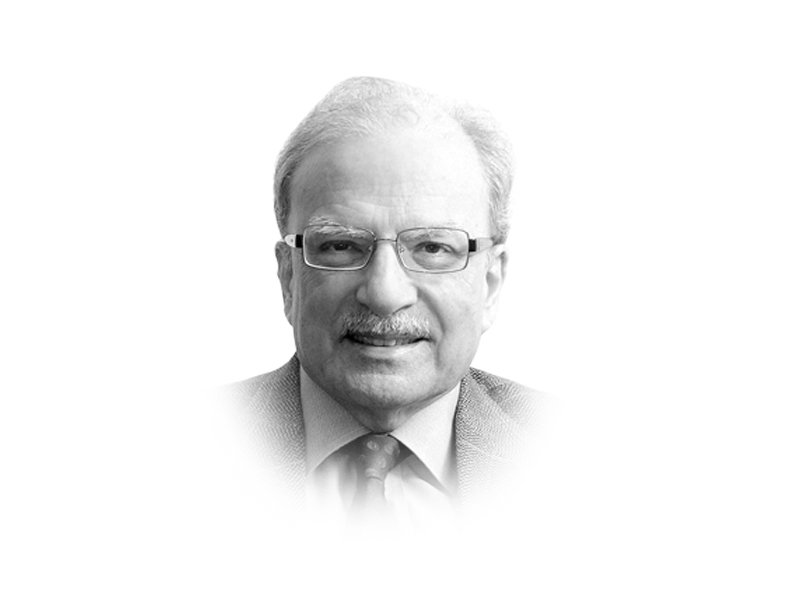
The old Cold War was not entirely cold. During the period when it raged, there were wars in Vietnam and Afghanistan. The Vietnam communists won the first while the Russian communist regime lost the second. The two wars had significant consequences. As argued by Francis Fukuyama, they spelled the “end of history”. It was demonstrated that the world was meant to follow liberal democracy and capitalism as the most viable systems for political and economic governance. There was agreement among development experts which earned the title of ‘The Washington Consensus’ that the state should pull back from managing the economy in any significant way. Ronald Reagan, the then US president, famously said the government was not the solution of economic problems; it was, in fact, the problem. There were moves in the US and more recently in Britain to severely limit the role of the state in both economic and political matters. But it was not recognised that a weakened state will find it difficult to be assertive in international affairs.
This is where the Chinese system of governance combines a strong state working closely with large and strong economic enterprises, seems to have the flexibility and resolve to be effective on the global stage. As the American political system gains the reputation for being dysfunctional, emerging states in Asia are finding the Chinese way of political and economic management to be attractive.
Under US President Barack Obama, Washington has spelled out an approach which it calls the “pivot to Asia”. The main policy instrument it is working on is the Trans-Pacific Partnership agreement (TPP) for achieving this objective. It involves a dozen countries. In addition to itself it includes Australia, Chile, Japan, Malaysia, Mexico, Philippines, South Korea and Vietnam. China is conspicuously absent on the ground that the TPP will cover only those countries in which the state is not the dominant force in defining international commerce. But for the moment the Obama Administration has been thrown on the back foot. On June 12, the House, the lower chamber of US Congress, rejected the Obama Administration’s move to get the “fast track authority”. This authority means that a trade treaty can only be approved or rejected but not tinkered with. In the absence of such authority, it would be virtually impossible to have a trade agreement work itself through Congress. Under the proposed legislation the president will have the authority for six years which period will also cover the term of the person who succeeds President Obama in January 2017.
The TPP, a 30-chapter document, negotiated over several years, is focused on the harmonisation of trade policies rather than on cutting tariffs on trade. As a result of several rounds of trade negotiations, tariffs have been cut down to the point where they don’t discourage international flow of goods and commodities. Those that are still high are mostly because of cultural reasons. This is the case with the Japanese tariffs on rice. Trade would be even easier if the countries involved follow the same set of regulations — develop, in other words, a level playing field. The TPP document among the Pacific Rim nations is important since they have a combined GDP of $28 trillion or 40 per cent of the global total. If the TPP is enacted, it will also lead to the successful conclusion of the other big Obama initiative, the one that would streamline the regulating systems in the United States and the European Union.
Most trade experts and analysts regard the House vote as a major setback for the president who is now in the last few months of his presidency. According to Lawrence Summer, former US Treasury Secretary and now a professor at Harvard University, repudiation of the TPP by Congress would “reinforce concerns that the vicissitudes of domestic policies are rendering the US a less reliable ally. Coming on top of the US failure to stop or join the Asian Infrastructure Investment Bank, it would signal the lack of US commitment to Asia when China is flexing its muscles.” The Chinese did not have to flex their military muscles to gain new ground in Asia. The Americans are doing it for them by finding it difficult to get a political consensus on regulating international trade, one area where they still have considerable influence.
Published in The Express Tribune, June 21st, 2015.
Like Opinion & Editorial on Facebook, follow @ETOpEd on Twitter to receive all updates on all our daily pieces.













COMMENTS (7)
Comments are moderated and generally will be posted if they are on-topic and not abusive.
For more information, please see our Comments FAQ